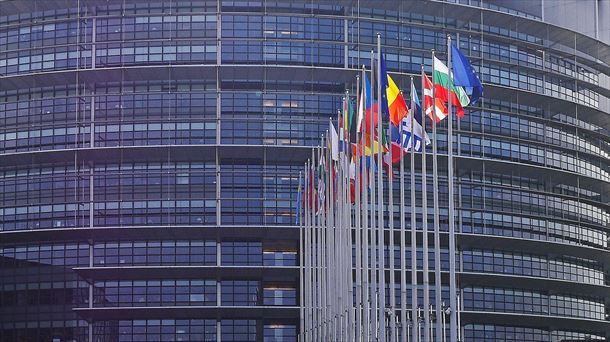Helga Schmid is Secretary General of the Organization for Security and Co-operation in Europe (OSCE), something like a European UN. At the summit of member states in Vienna, the focus was on climate change as a security issue. Wars like the one against Ukraine leave a military ecological footprint. In the “Krone” interview, she spoke about the most pressing issues.
On July 3, 1973, the “Conference on Security and Cooperation in Europe” was opened, which later became the OSCE. The organization will soon celebrate its 50th anniversary. Do you feel like partying?
Due to the geopolitical situation, there is generally not much reason to celebrate internationally. And we as an organization also have our problems. We have not had an approved budget since 2021. But we adapted very quickly. Many programs are now funded off budget. Also about climate change. In an analysis in the OSCE area, we identified 42 hotspots that are severely affected by climate change.
In Central Asia, for example, the glaciers are melting before their very eyes. The decline in recent years was 25 percent. There is a dramatic water supply problem in the region. Many of these problems are cross-border. As OSCE, we bring all countries and all levels together, because only together can you find a solution.
Projects must be unanimous in the OSCE. For example, is climate change a security issue? Do you agree?
Yes. Climate change was already mentioned in the final act of the 1975 conference. That was very prescient. But above all, we have the December 2021 ministerial decision on climate change. This is our working base and has been approved by all 57 members.
The theme of the summit is climate change and the security issue. What do you expect?
It’s two things. On the one hand, showing what we do as an organization, where our added value lies – in promoting regional cooperation. I am very pleased that we are hosting the five environment ministers from Central Asia, for example. But it is also about showing the impact of conflicts on climate goals. Take the war against Ukraine – the consequences are therefore cross-border.
It is therefore good that we are hosting the Minister of the Environment from Ukraine, but also from the neighboring Republic of Moldova, in Vienna. I want to elaborate on this further: how do conflicts affect our climate goals? Military activities have an environmental footprint, emit emissions. But Ukraine was also on the right track in the field of renewable energy. As a result of the war, 90 percent of the wind turbines and 50 percent of the solar systems were taken off the grid. There is no climate target to be achieved.
Has the war in Ukraine now fueled the issue? Would the summit have taken place if we had not had the war in Ukraine?
The answer is yes. The issue of climate change has been on the radar from the very beginning. Because our added value as the OSCE is that we also bring countries to the table that may not always have friendly relations. We define security not only politically and militarily, but also economically, ecologically and in the so-called “human dimension”. This has certainly become more important in recent years. Probably also because you have personally experienced the extreme weather conditions here. Think of the flood in Germany two years ago that wiped out entire villages.
What security implications do you expect for Central Europe?
Climate change is a problem for all of us, especially its consequences. There are analyzes that, for example, areas in the African Sahel will no longer be habitable in a few decades. There is a huge water problem in Central Asia. The battle for resources will lead to conflict. That also has an impact on us. Europe is not isolated there.
What obstacles do you encounter?
With climate change for a few. When I made a report on climate change and security in 2008, then for the EU, we were asked if we wanted to militarize climate change now. But today the connection is common knowledge. Climate change is primarily a multiplier of crises.
Is there good news?
The good news is that climate change is now widely recognized as a major existential threat. And that many are really committed, that we as an organization also make our contribution. And many of our participating states are already very committed. For example, the president of Mongolia has launched a project to plant 1 billion trees by 2030.
Where are women disproportionately affected and how can you involve them more?
In the water sector, energy sector, also new energies, we do vocational training programs and further training for women in Central Asia to increase the proportion of women in these work areas. They are very well accepted. And women also need to be more involved in decision-making processes. The proportion of women in peace negotiations or mediation processes is still very small. The share of women involved in agreements is less than 10 percent. However, there is empirical evidence that when women are involved in peace negotiations, they are 35 percent more likely to keep it.
Source: Krone
I am Wallace Jones, an experienced journalist. I specialize in writing for the world section of Today Times Live. With over a decade of experience, I have developed an eye for detail when it comes to reporting on local and global stories. My passion lies in uncovering the truth through my investigative skills and creating thought-provoking content that resonates with readers worldwide.



